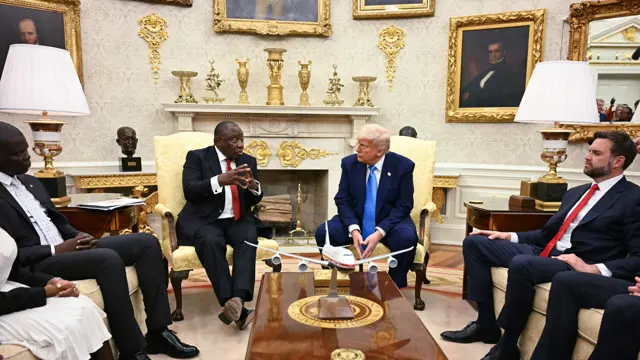Former President Jacob Zuma has openly criticized the recent South African delegation to Washington, DC, dismissing their efforts to seek American investment and support as misguided. Addressing supporters of the MK Party in KwaMaphumulo, KwaZulu-Natal, over the weekend, Zuma took aim at President Cyril Ramaphosa’s high-profile working visit to the US, where he and four ministers met with Donald Trump’s administration to mend strained bilateral relations.
The diplomatic mission came after months of tension between Pretoria and Washington, fueled by Trump’s criticism of South Africa’s land reform policies and foreign relations. During the talks, the South African delegation pushed back against allegations of human rights violations while requesting US assistance in combating crime through technology transfers.
“We Must Solve Our Own Problems” – Zuma
In his trademark defiant style, Zuma questioned the delegation’s approach, insisting that South Africans should resolve their challenges without foreign intervention.
“You can go to America for all we care, but we refuse to have our problems fixed by Americans we don’t even know,” he told the crowd. “We want to fix our own problems.”
His remarks reflect lingering skepticism among some factions within South Africa’s political landscape about Western influence, particularly from the US. Zuma, who has long positioned himself as a champion of African sovereignty, has repeatedly clashed with Western governments over economic and foreign policy during and after his presidency.
A Broader Political Divide
The criticism also underscores the growing ideological rift between Zuma’s camp and the Ramaphosa-led ANC. While Ramaphosa has pursued a more conciliatory, investment-friendly approach to international relations, Zuma and his allies advocate for a more assertive, self-reliant stance.
Political analysts suggest Zuma’s comments are less about diplomacy and more about reinforcing his populist appeal ahead of potential political maneuvers. With the MK Party gaining traction in KZN, his rhetoric could be aimed at galvanizing support among voters disillusioned with the ANC’s current direction.
Ramaphosa’s Balancing Act
The Washington visit was seen as an attempt by Ramaphosa to stabilize relations with a key trade partner amid South Africa’s economic struggles. However, Zuma’s dismissal of the trip signals that not all within the broader liberation movement agree with engaging Western powers for solutions.
As the debate continues, the contrasting approaches highlight a fundamental question: Should South Africa seek external partnerships to address its crises, or should it prioritize homegrown solutions—even if that means slower progress? For now, Zuma’s message is clear: “We don’t need Americans to tell us how to fix our country.”
The remarks are likely to fuel further debate within the ANC and beyond, as South Africa grapples with unemployment, crime, and economic stagnation—all while navigating an increasingly complex global political landscape.






















